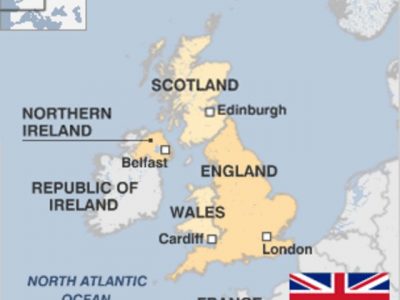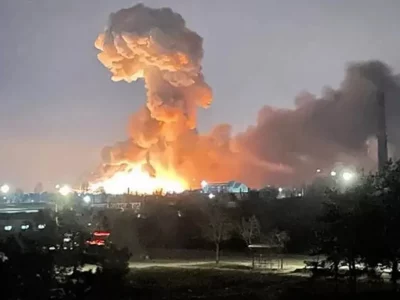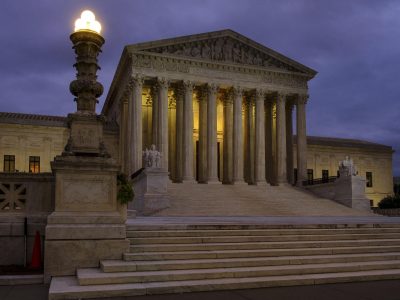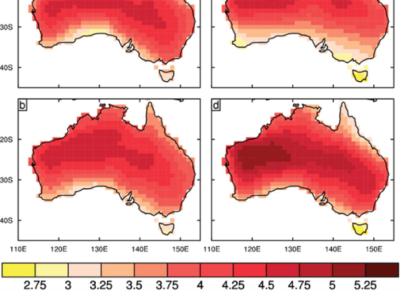Remembering Dale Goble
“Father of Wildlife Law” passed away this spring
Dale Goble, professor of law at University of Idaho, passed this April. There are numerous excellent tributes to Dale’s life, available here, here, and here. As a co-author of Dale’s on our Wildlife Law casebook, I wanted to add my personal recognition of his life and work. When I first started teaching law over 15 years ago, one of my first courses was a Biodiversity Law class. Protection of biodiversity is what prodded me to going to law school, and to wor...
CONTINUE READINGSubnational Climate Action in the UK
As in the U.S., it’s not all about the national government. Not by any means.
Last week, I posted about the British government’s climate policy. In sharp contrast with their American counterparts, British conservatives remain firmly behind the Paris Agreement and supportive of cap-and-trade. In another respect, though, there’s more similarity: in both countries, subnational governments play a key role in climate policy. Here’s what’s happening across Great Britain. Regional governments. Although ultimate power remains in the national Par...
CONTINUE READINGWhen is a bee a fish?
The California Court of Appeal finds that invertebrates can be protected under the California Endangered Species Act
That was the question before the Third District of the California Court of Appeal. The California Fish and Game Commission had accepted petitions to list four species of native California bees for protection under the California Endangered Species Act (CESA). A group of agricultural trade associations challenged the decision as exceeding the Commission’s authority under CESA, on the grounds that terrestrial invertebrates are not covered by CESA. The...
CONTINUE READINGDesalination: An Essential Part of California’s Water Future
Coastal Commission's Recent Rejection of Huntington Beach Desalination Project Misguided
Let me begin this commentary with a disclaimer: I was an early and strong proponent of Proposition 20, the successful 1972 California voter initiative measure that enacted the Coastal Act and created the California Coastal Commission (albeit temporarily). I supported with equal enthusiasm the state Legislature's 1976 enactment of legislation making both the Coastal Act and the Commission permanent. For the past 50 years I've similarly advocated for robust impl...
CONTINUE READINGWar and the Environment: Ukraine in 2022
The environment is also a victim of the Russian invasion -- perhaps to the point of being a war crime.
Memorial Day began as a day to commemorate the Civil War dead, then became a day to commemorate the dead from many wars. But war's toll goes beyond direct harm to humans. The environment also suffers. On top of its human tragedies, the Russian invasion of Ukraine is also wreaking environmental havoc. One source of concern involves destruction of industrial plants. Ukraine has many chemical plants and storage facilities, some of which have already been hit. Even ...
CONTINUE READINGConservatives Who Support Climate Action
No, not here. The British Tories.
There is continuing conservative support for climate action. Not so much here, of course, but in the UK. The British government is firmly in the grip of the Conservative Party. Prime Minister Boris Johnson is no Donald Trump, but he does have at least a whiff of Trumpiness about him. Like the GOP, the Tories have moved somewhat away from their traditional constituencies to embrace working class voters on an anti-internationalist platform. And yet, the UK remains firmly c...
CONTINUE READINGAfter the Court Rules: Gaming out Responses to a Cutback in EPA Authority
The Supreme Court is almost certain to cut back on EPA’s power to regulate greenhouse gases. What then?
In West Virginia v. EPA, the Supreme Court is reviewing Obama’s Clean Power Plan. The Clean Power Plan (CPP) itself no longer has any practical relevance, but there’s every reason to predict the Court will strike it down anyway. The ruling will also restrict EPA's future options. The big question is what the Biden Administration should do next. That depends on the breadth of the Court’s opinion. The Clean Power Plan was the centerpiece of the Obama Administratio...
CONTINUE READINGGood News from “Down Under”
Australia’s election signals a welcome change in climate policy.
Australia has had a change of government. The Liberal Party — conservative in everything but name — lost control of the federal government to Labor. Australia was recently ranked last out of sixty countries in climate policy.The victorious Labor candidate told his supporters, “Together we can end the climate wars. Together we can take advantage of the opportunity for Australia to be a renewable energy superpower.” The new premier's views sharply contras...
CONTINUE READINGWorld-Changing Opportunity for California
$100 Million for Methane Satellites
Governor Newsom’s May Revise budget proposal includes this item: Methane Satellites—$100 million Greenhouse Gas Reduction Fund on a one-time basis to expand the number of satellites launched for methane observations, which would provide weekly measurement of large methane emissions in the state and enhance enforcement capabilities. This data will allow California to identify the source of these emissions, work with programs to hold emitters accountable for violation...
CONTINUE READINGIncome-Targeted Environmental Policies, Episode 2
Affordable housing and the Transit-Oriented Communities program
This is the second post in a short series on income-targeted environmental policies. You can read the first post, introducing the concept of "Area Median Income," here. In this second part of my series on income-targeted environmental programs, I want to talk about affordable housing, and one particular housing program, Transit-Oriented Communities (TOC). TOC has been billed as a double-win: it encourages new housing to be located near public transit—a boon for clim...
CONTINUE READING










